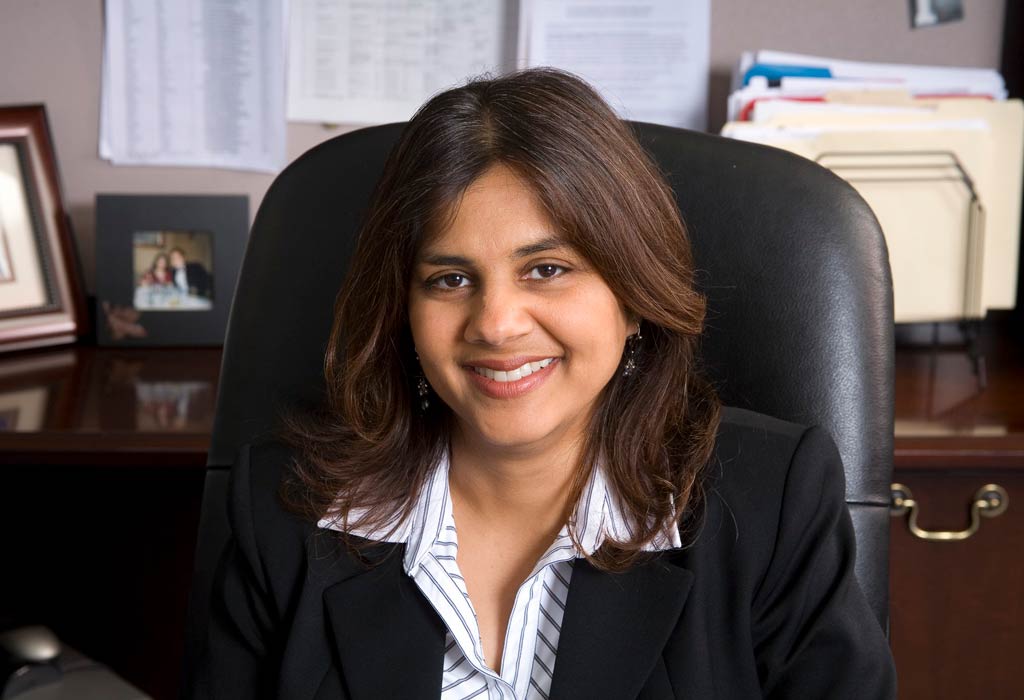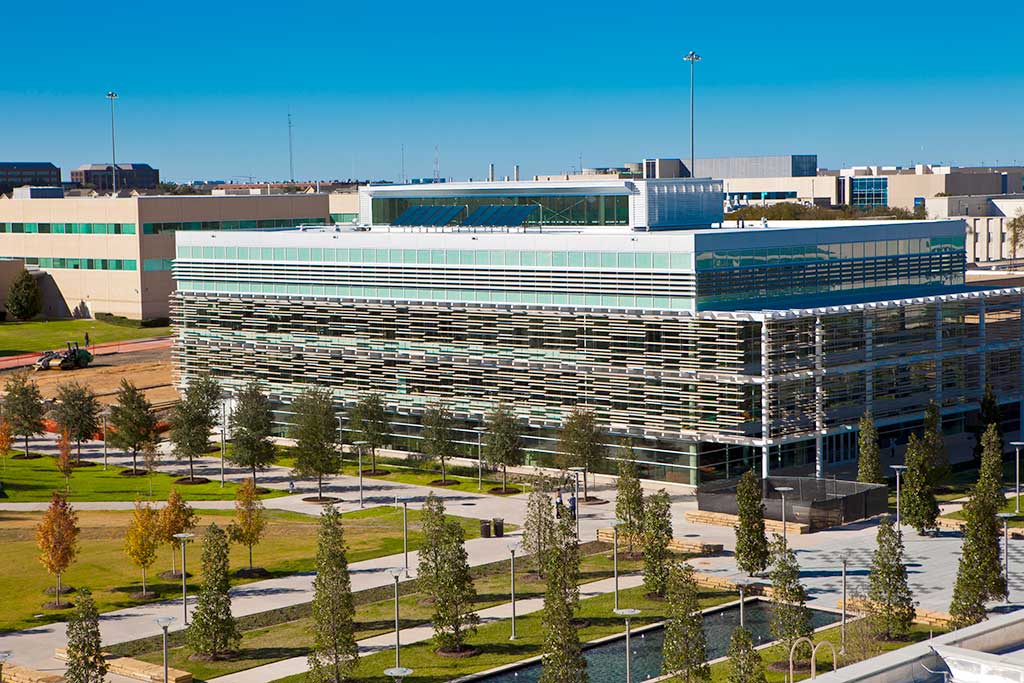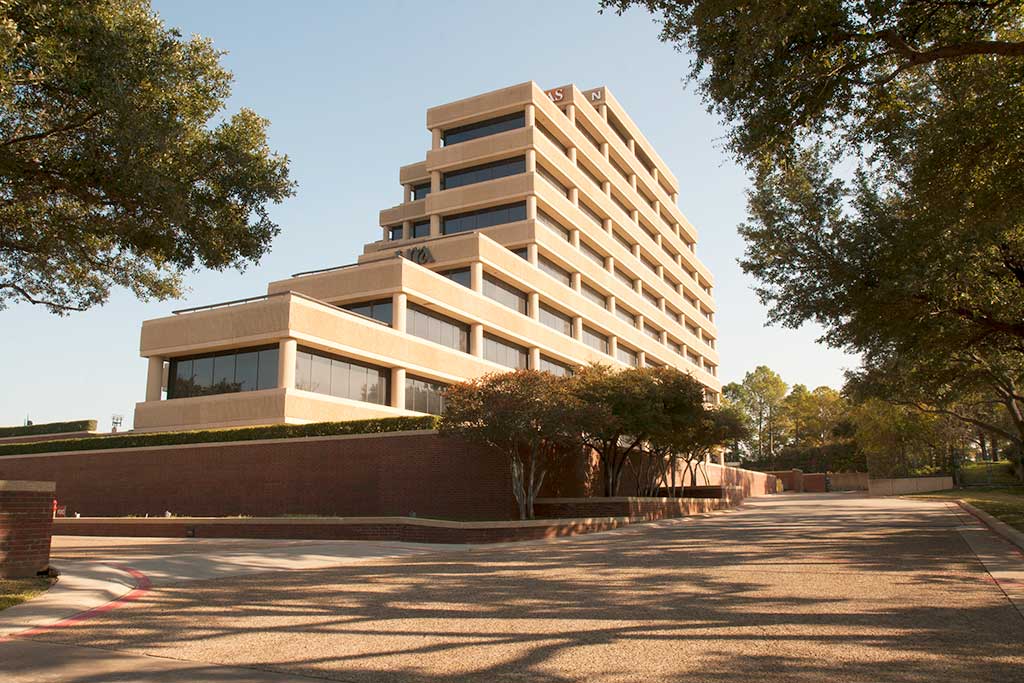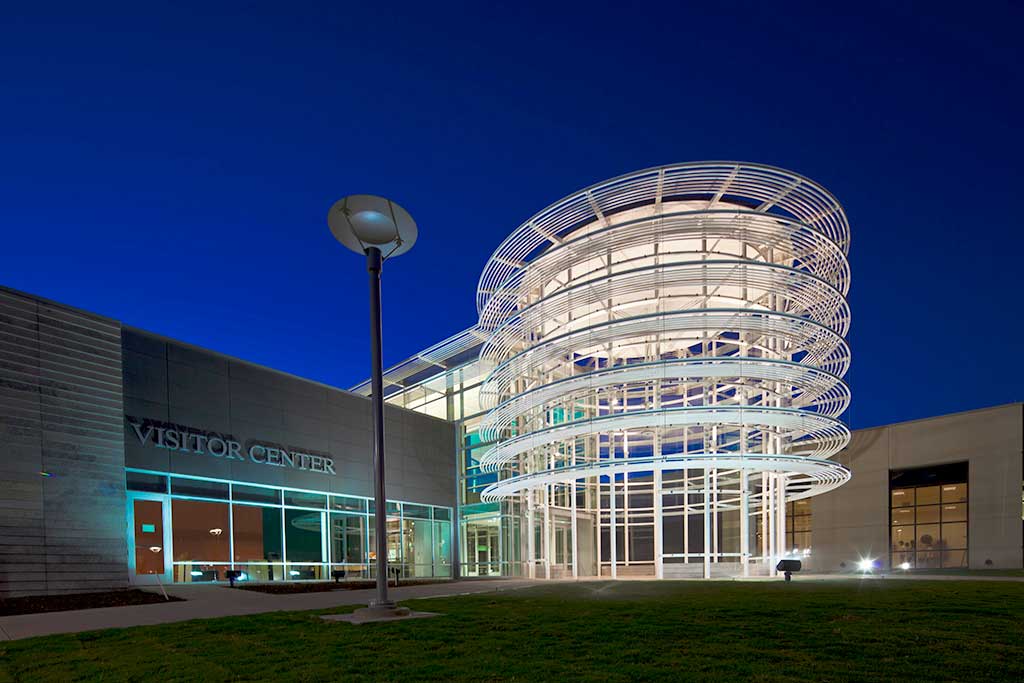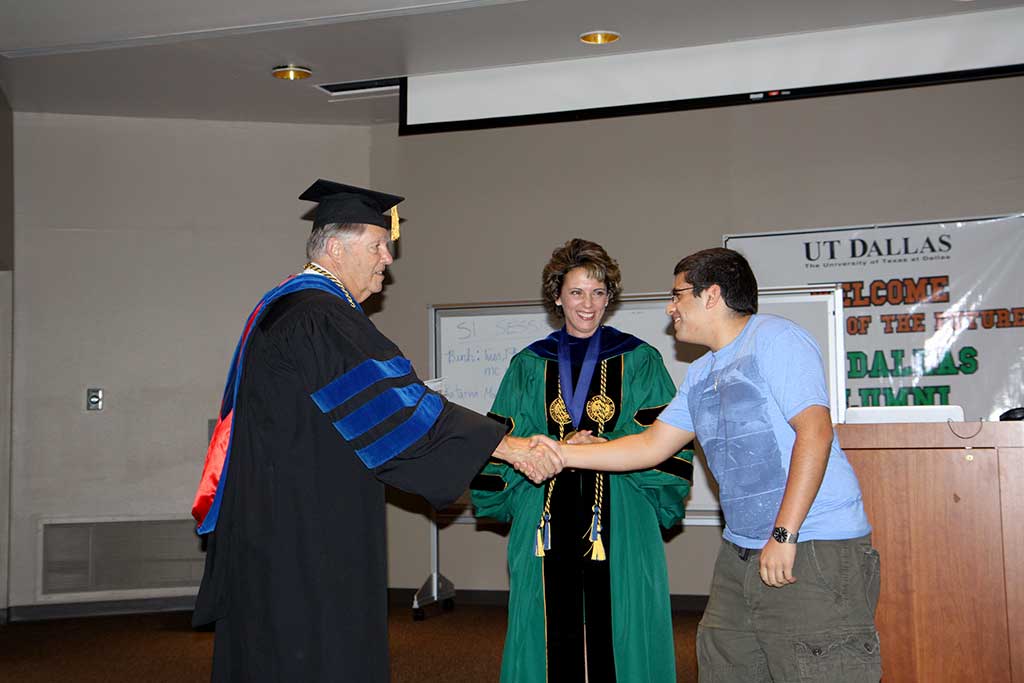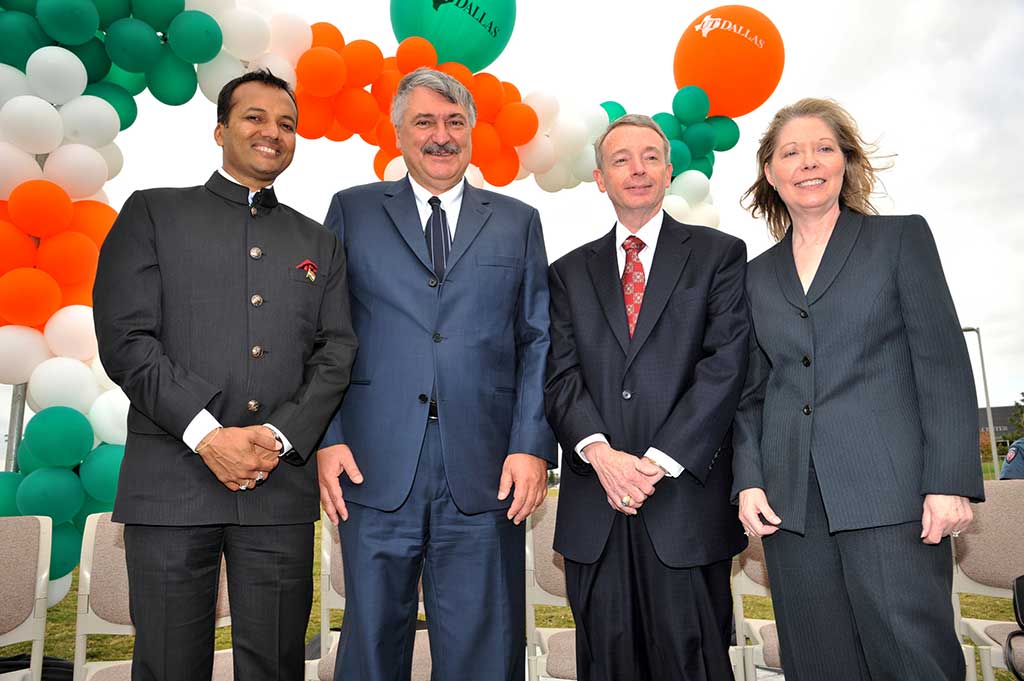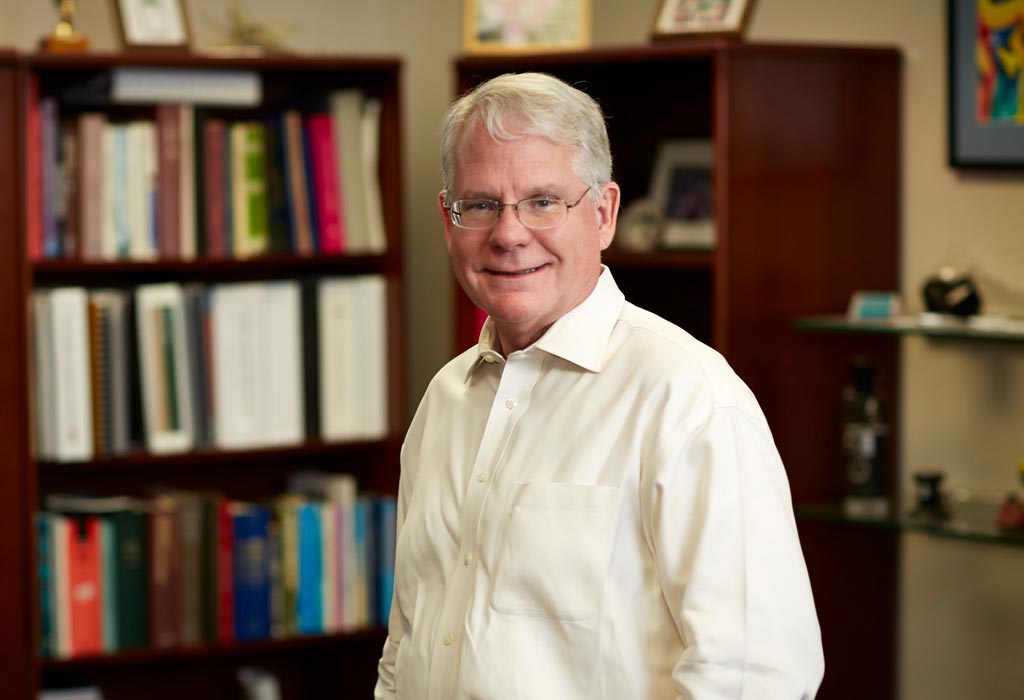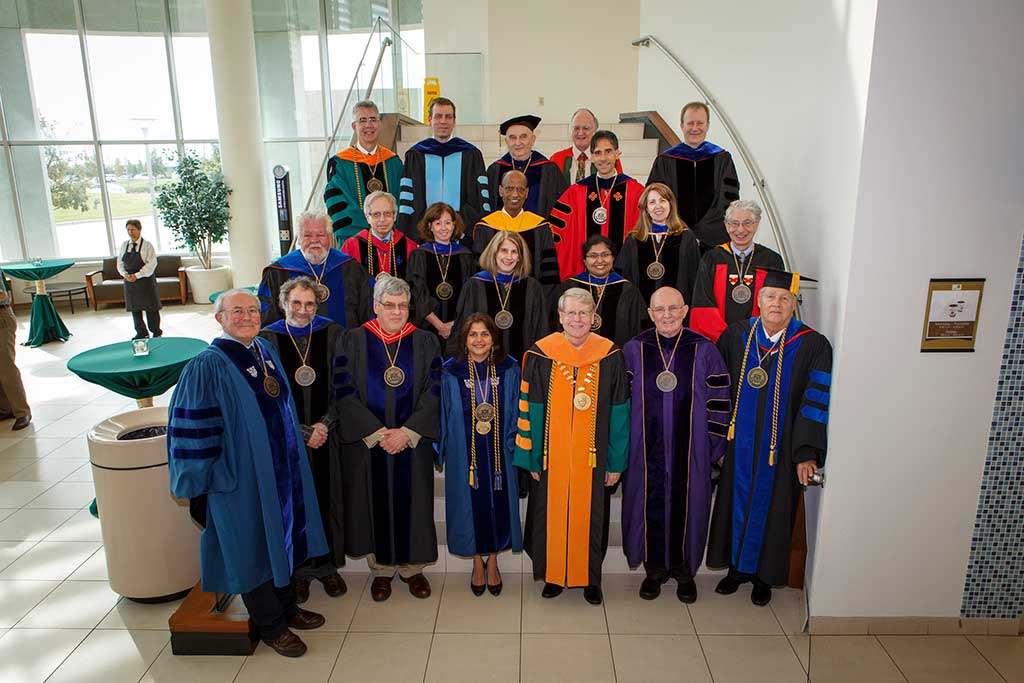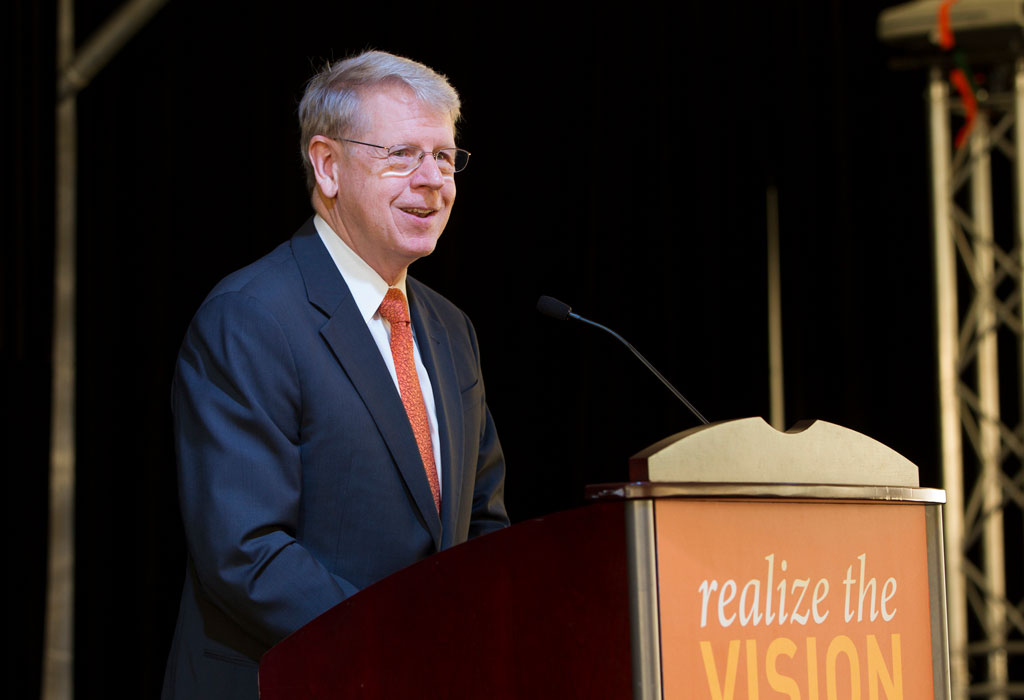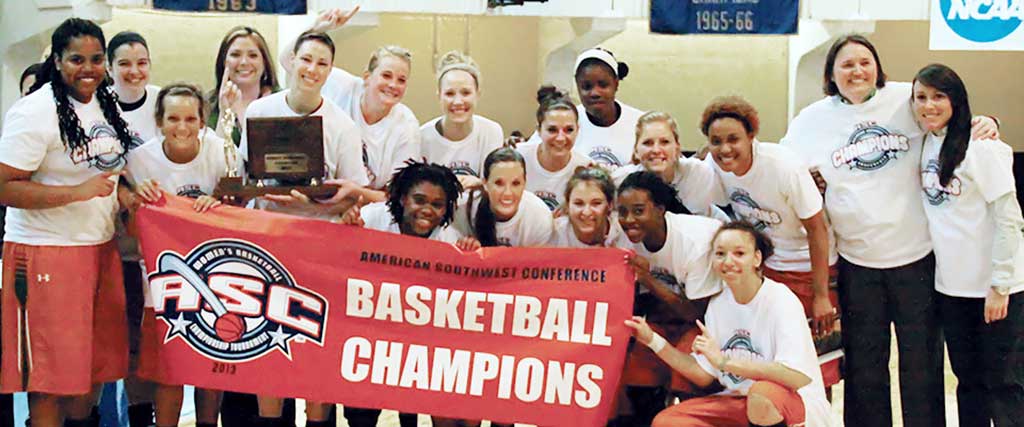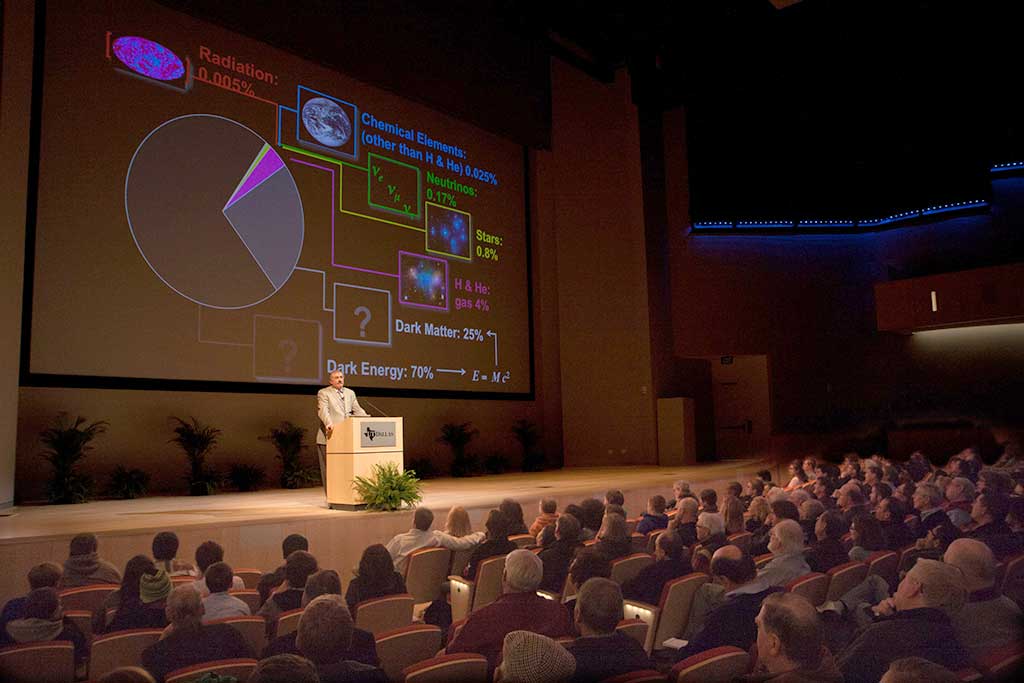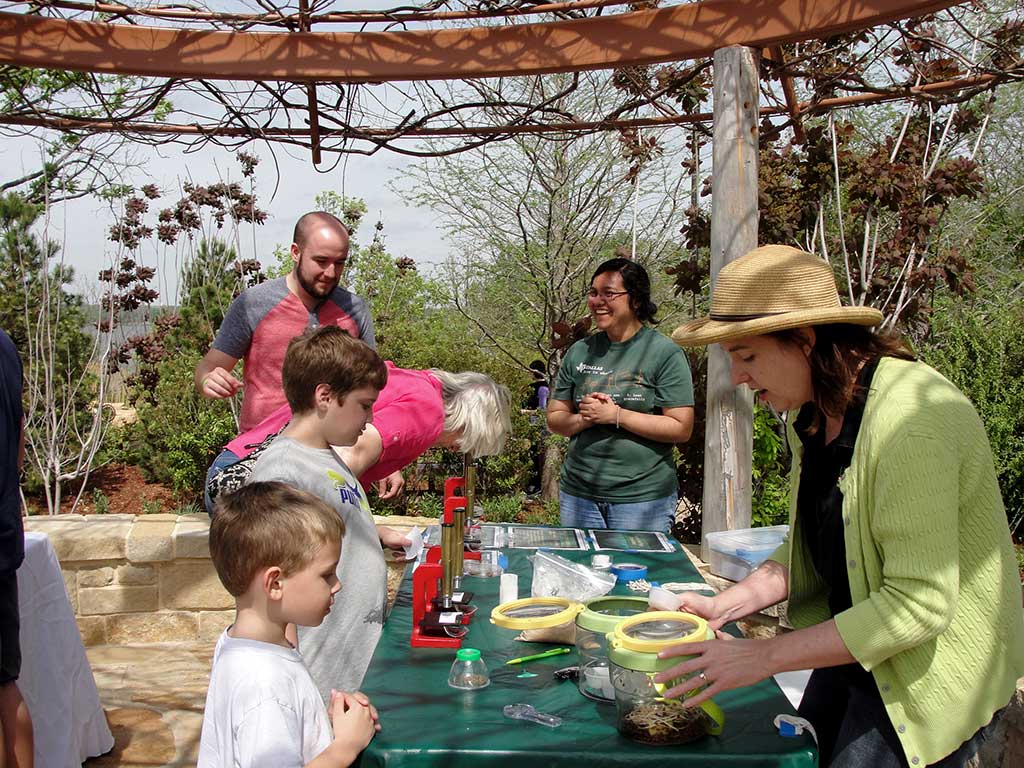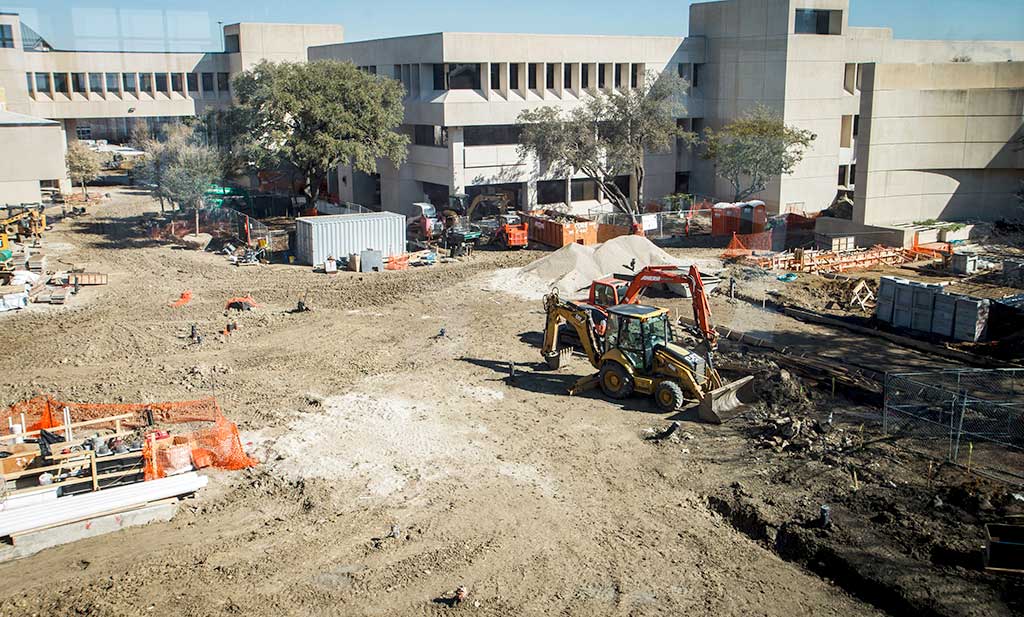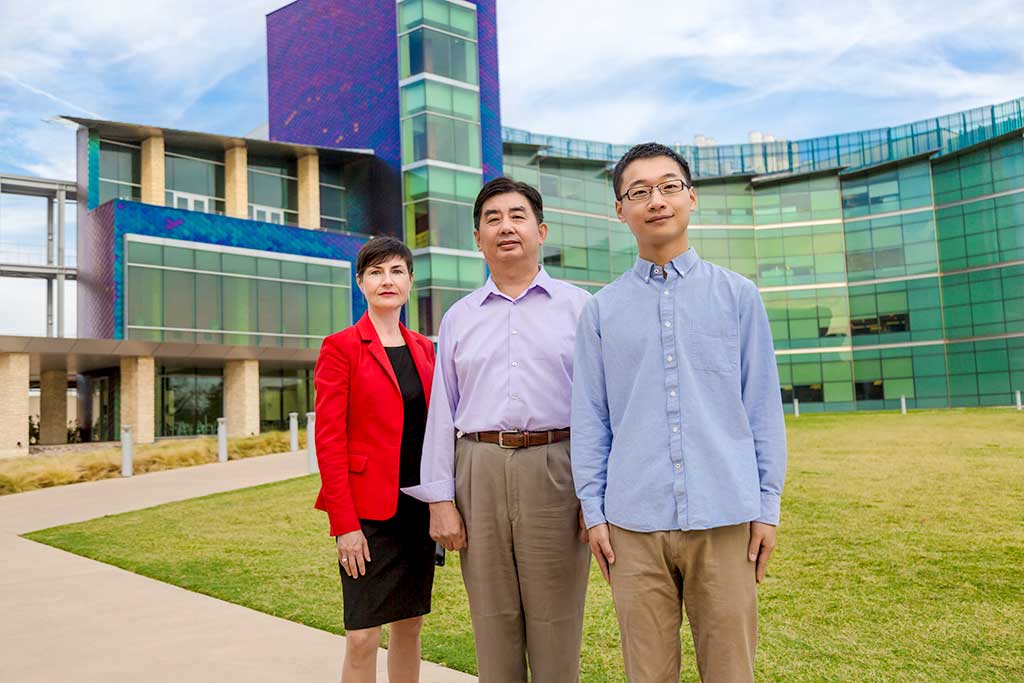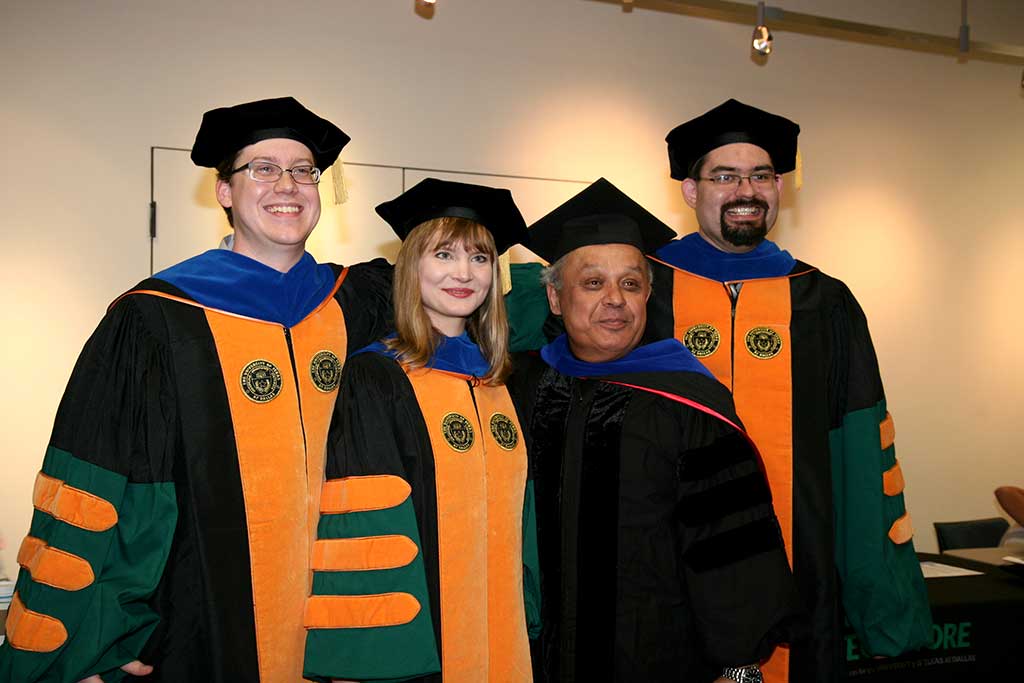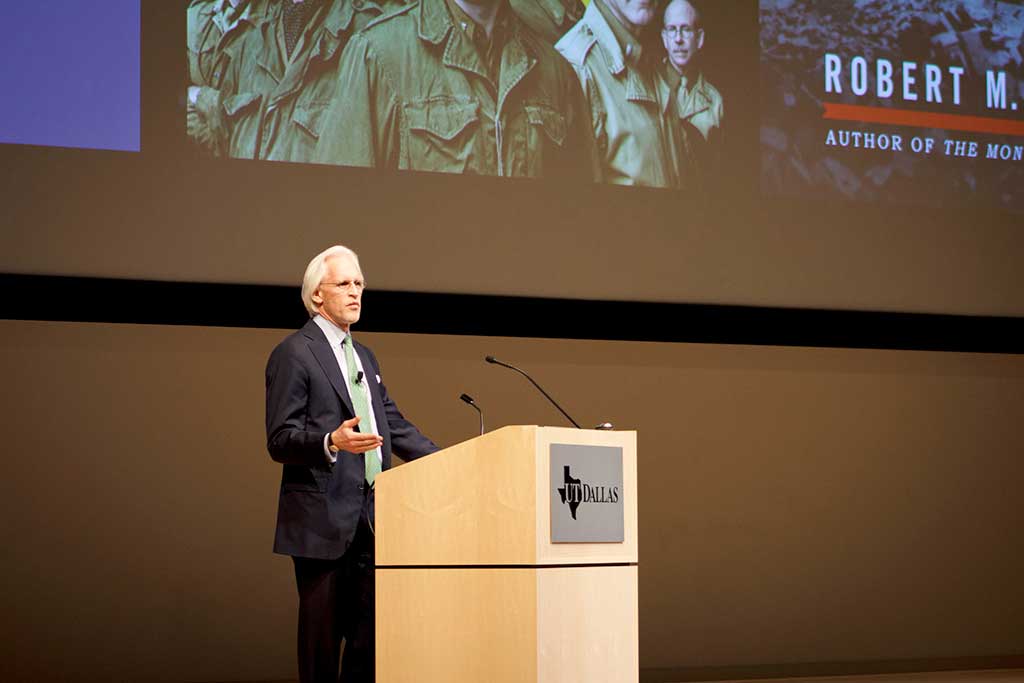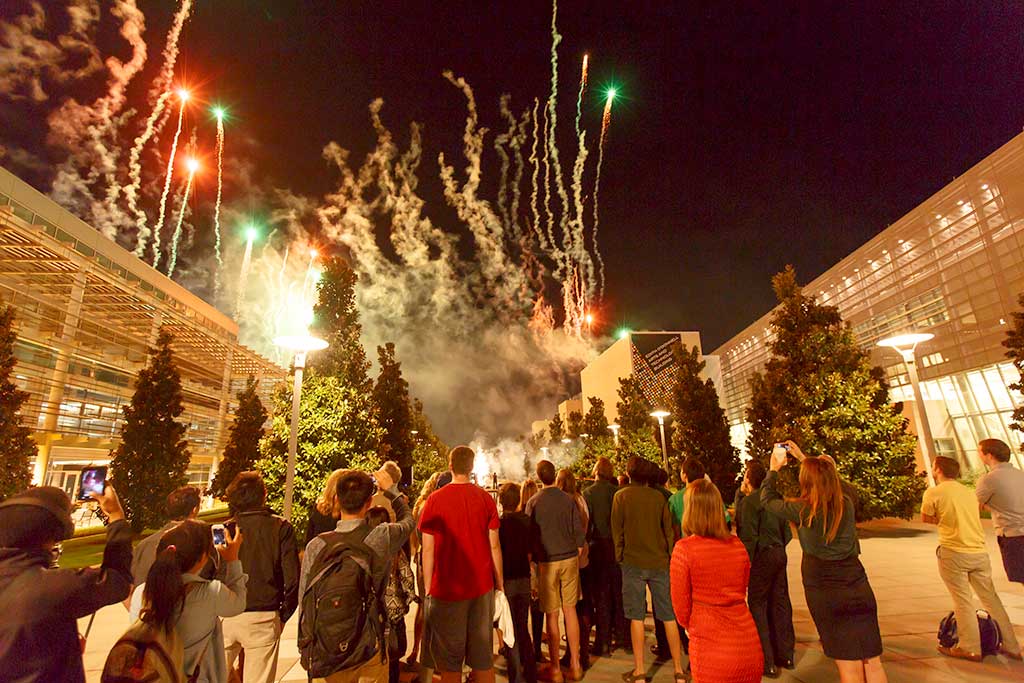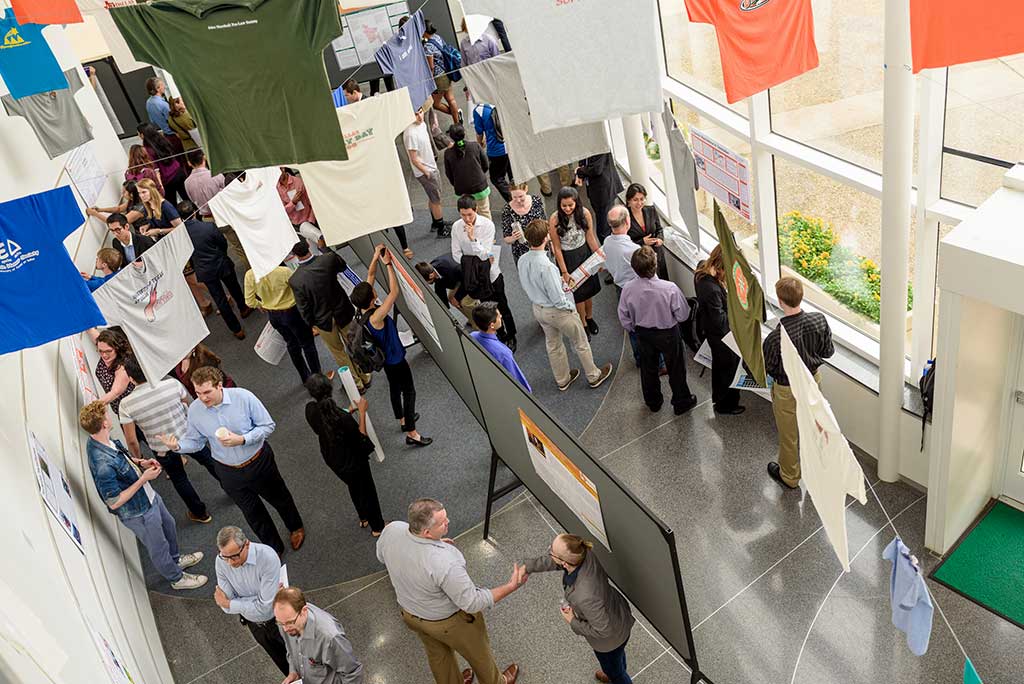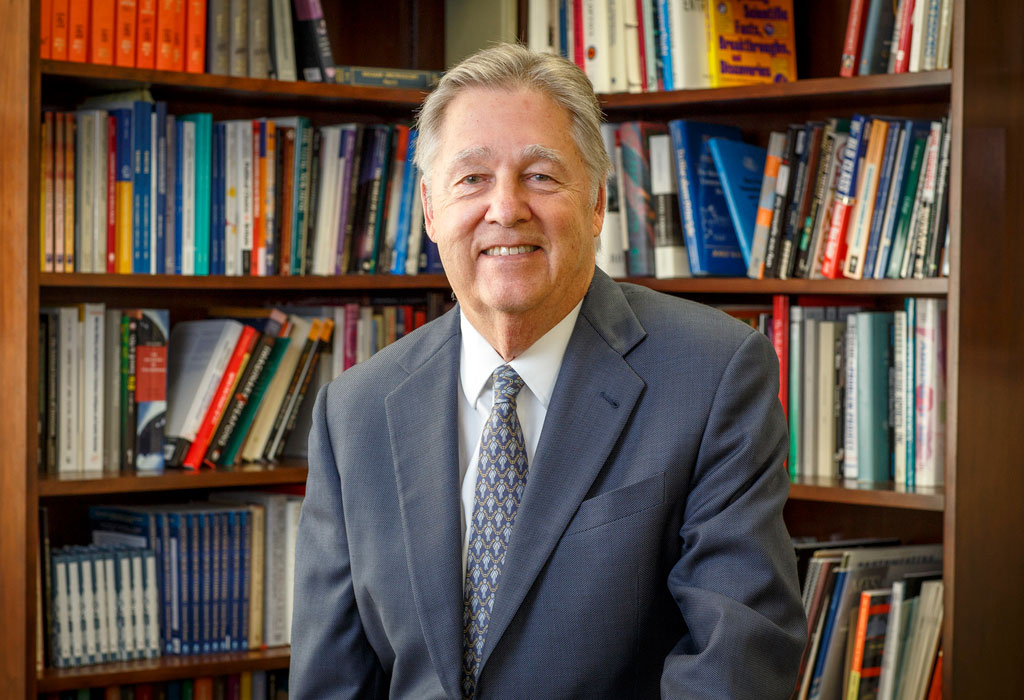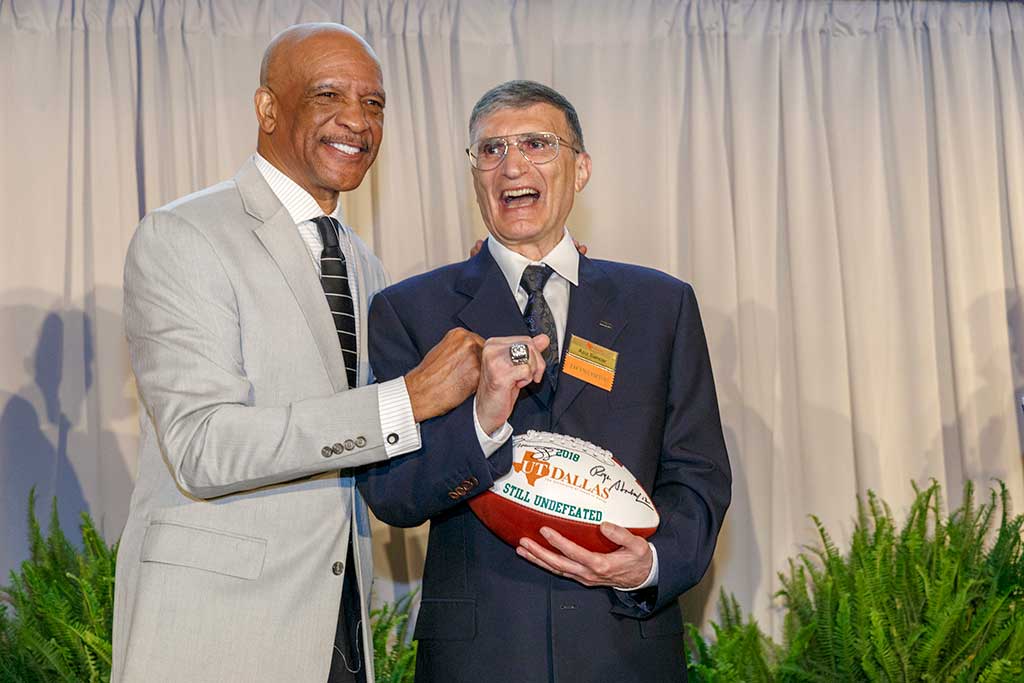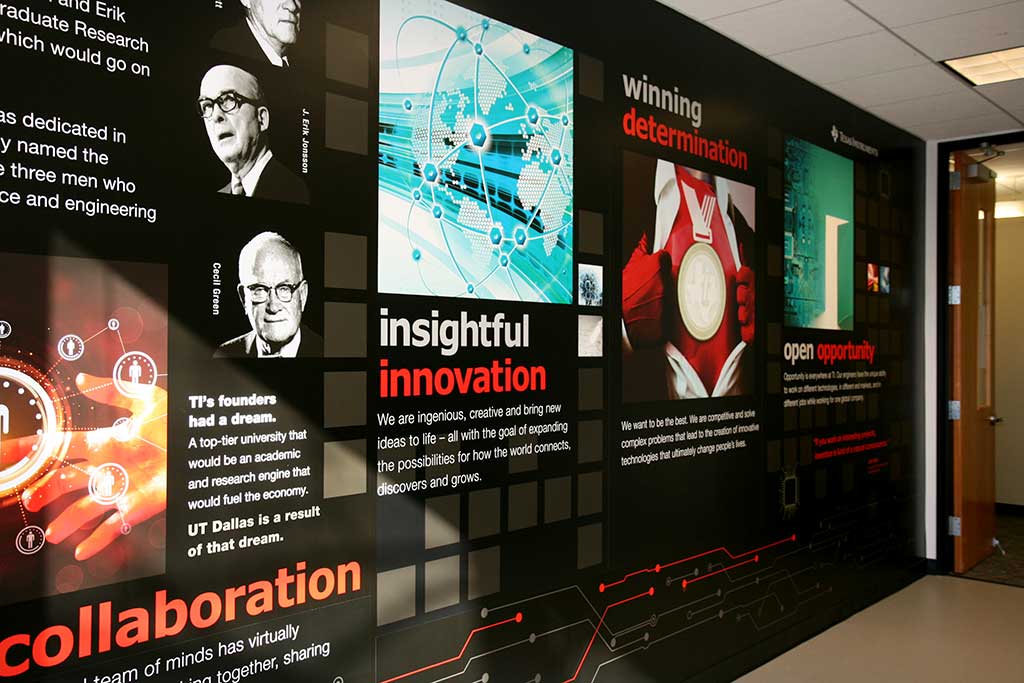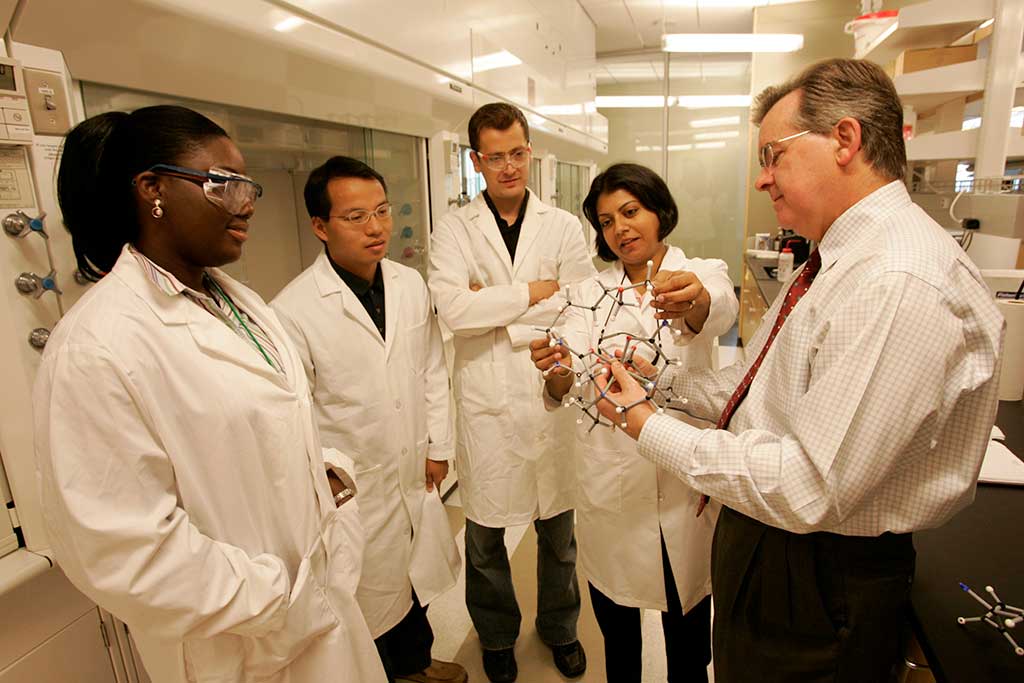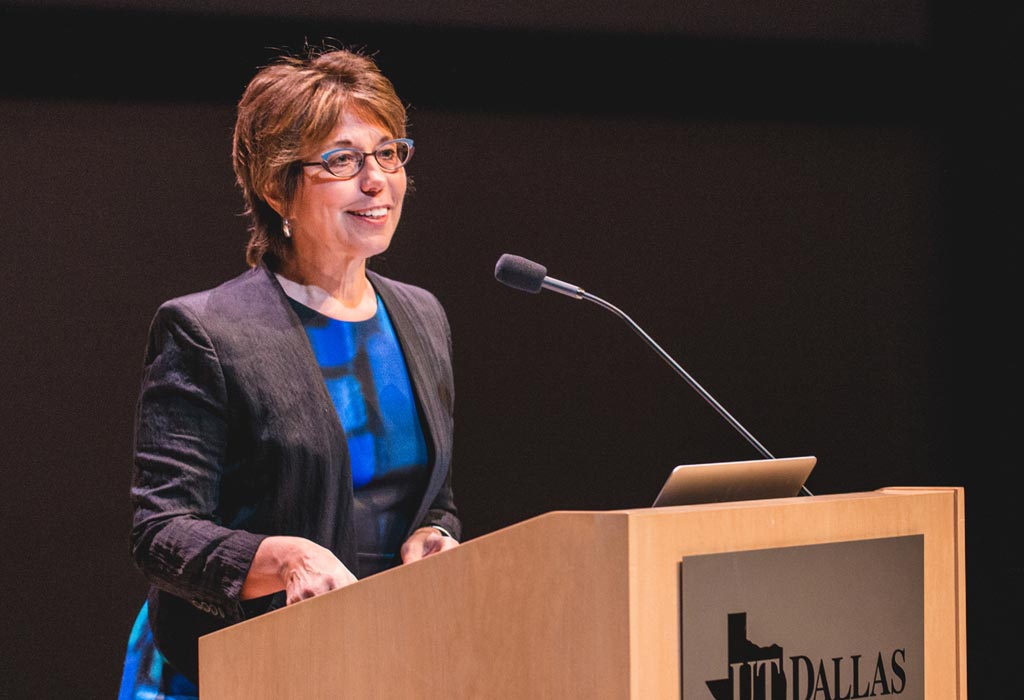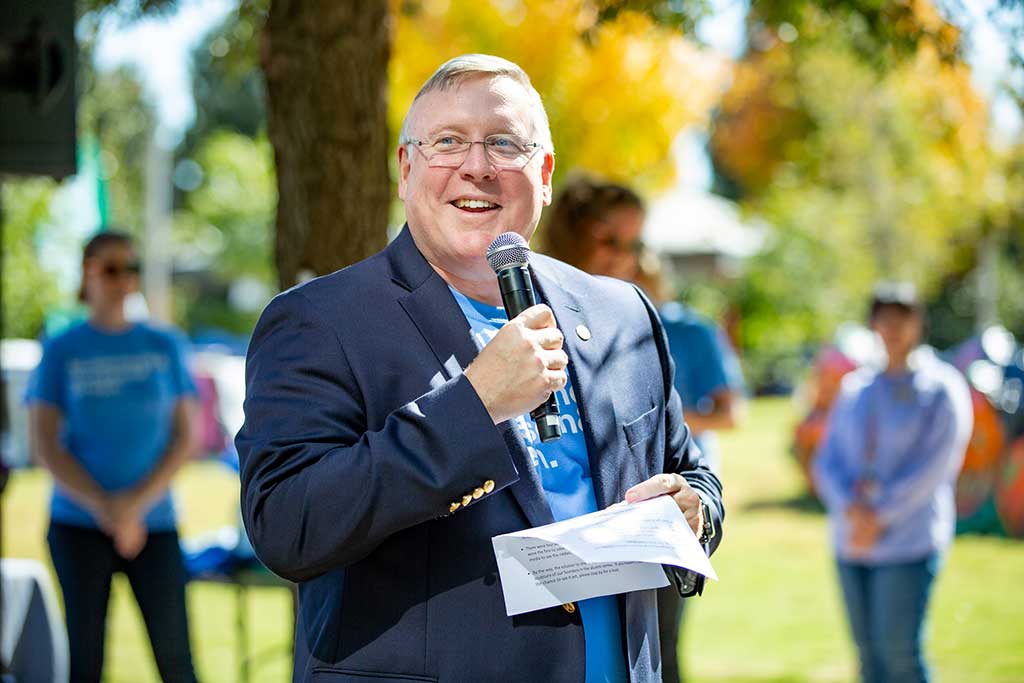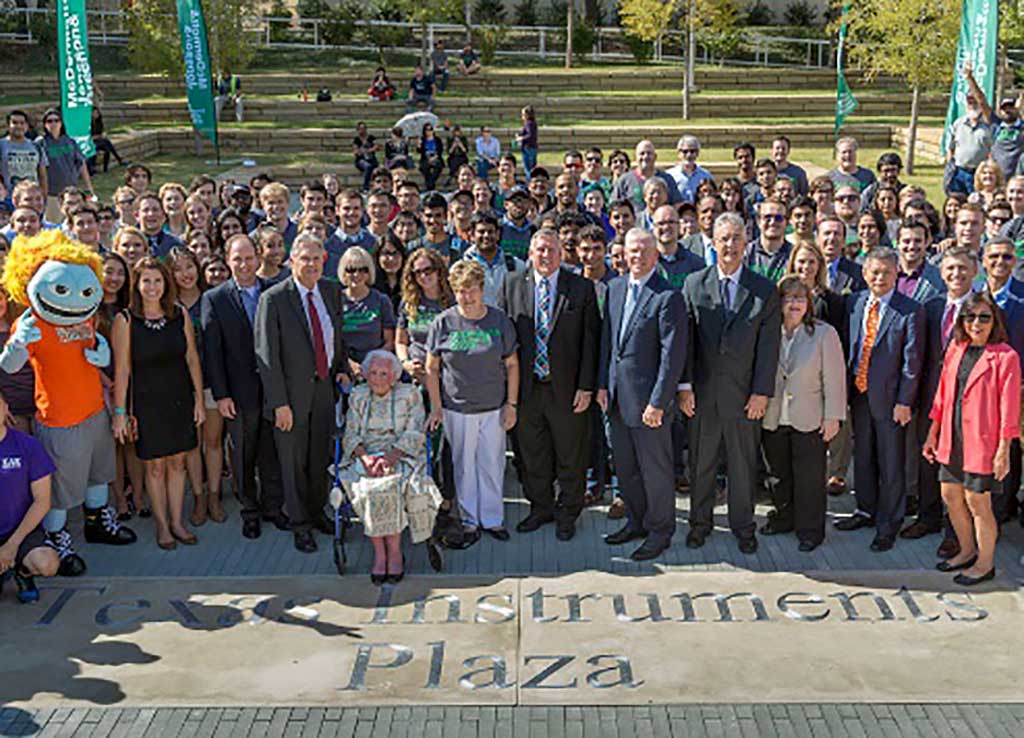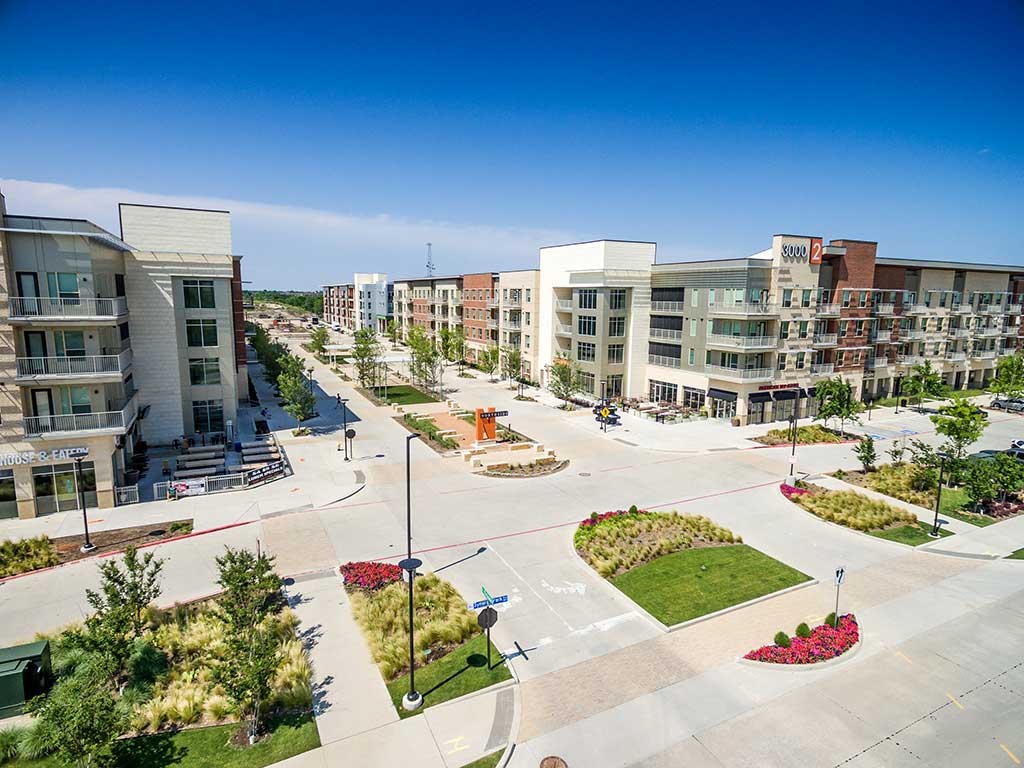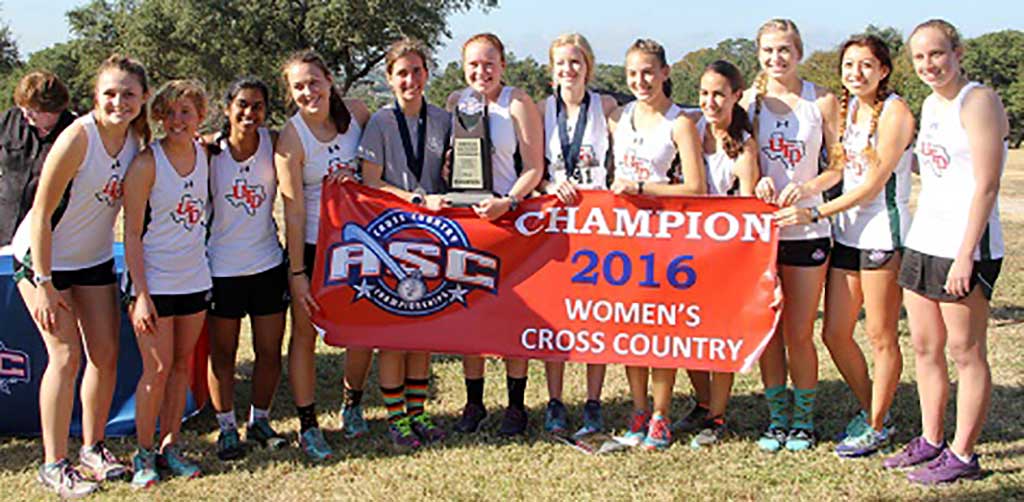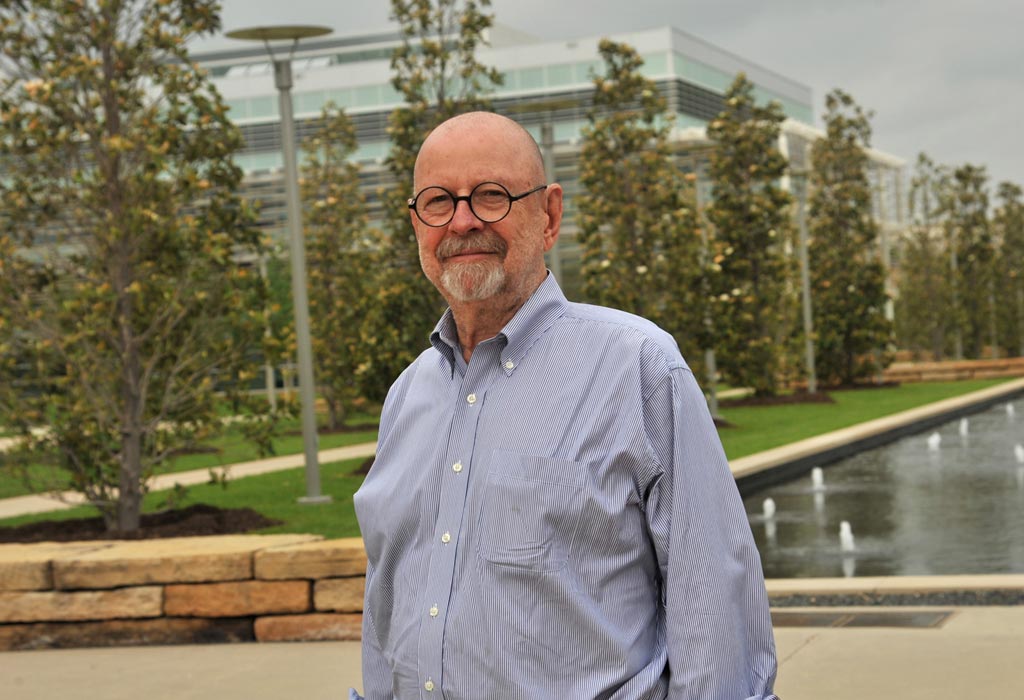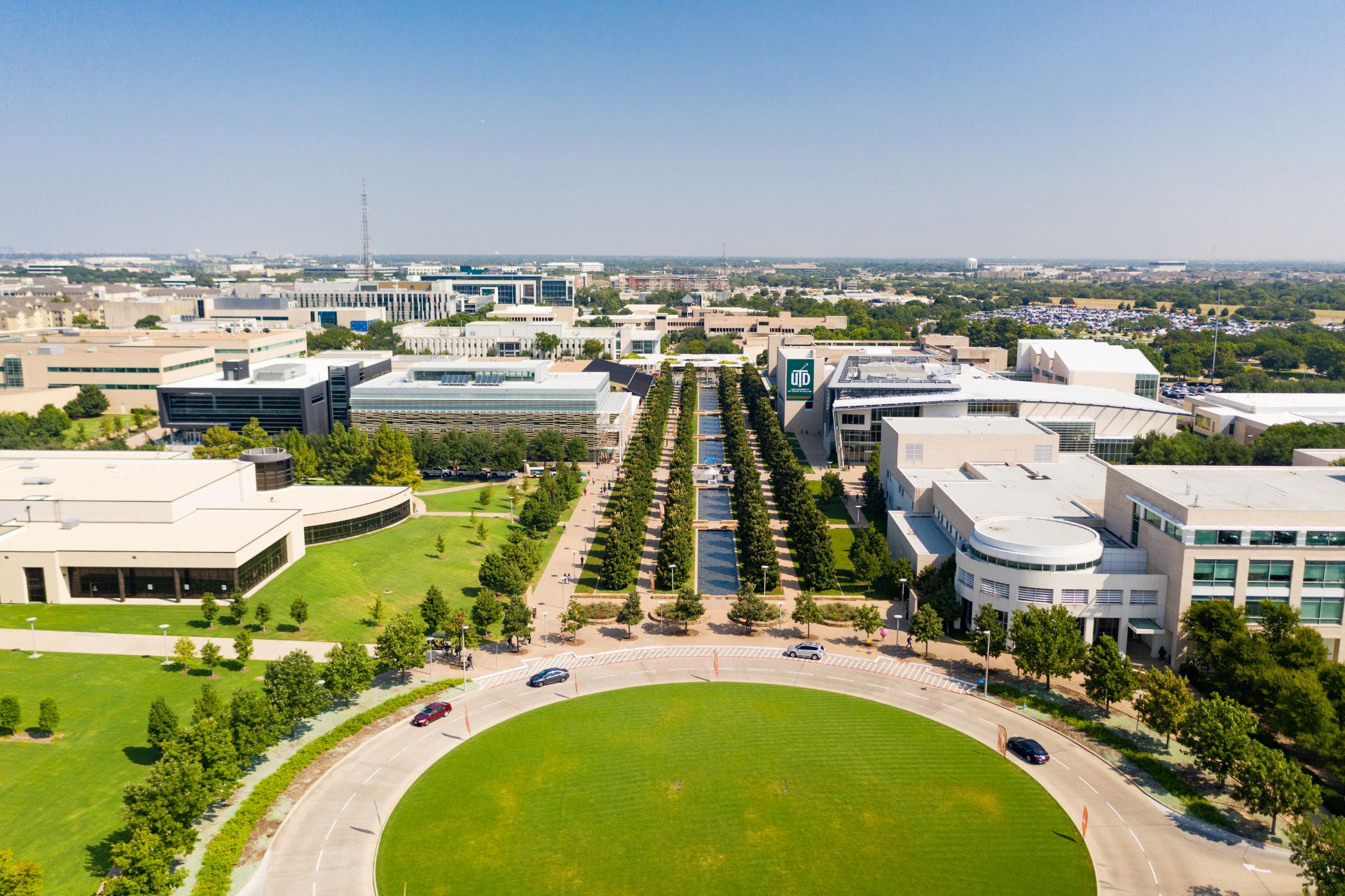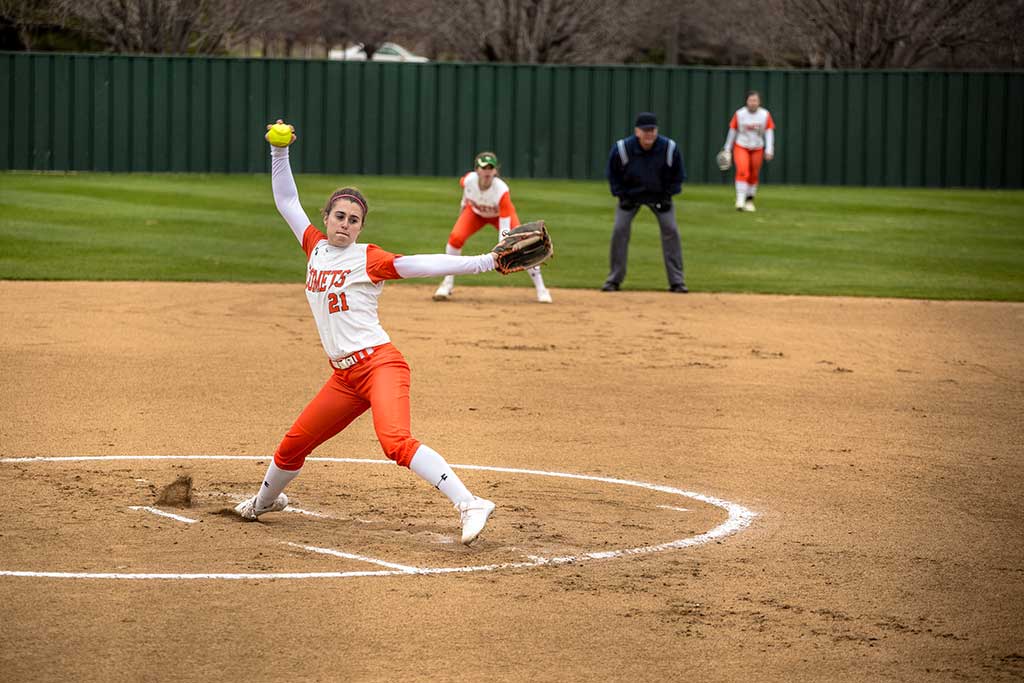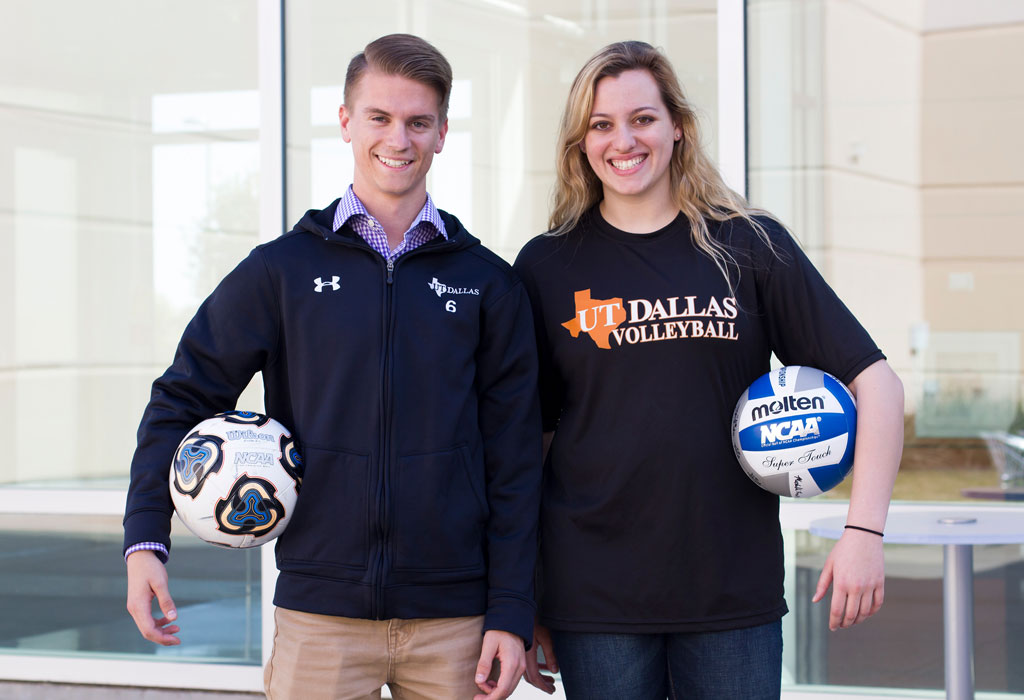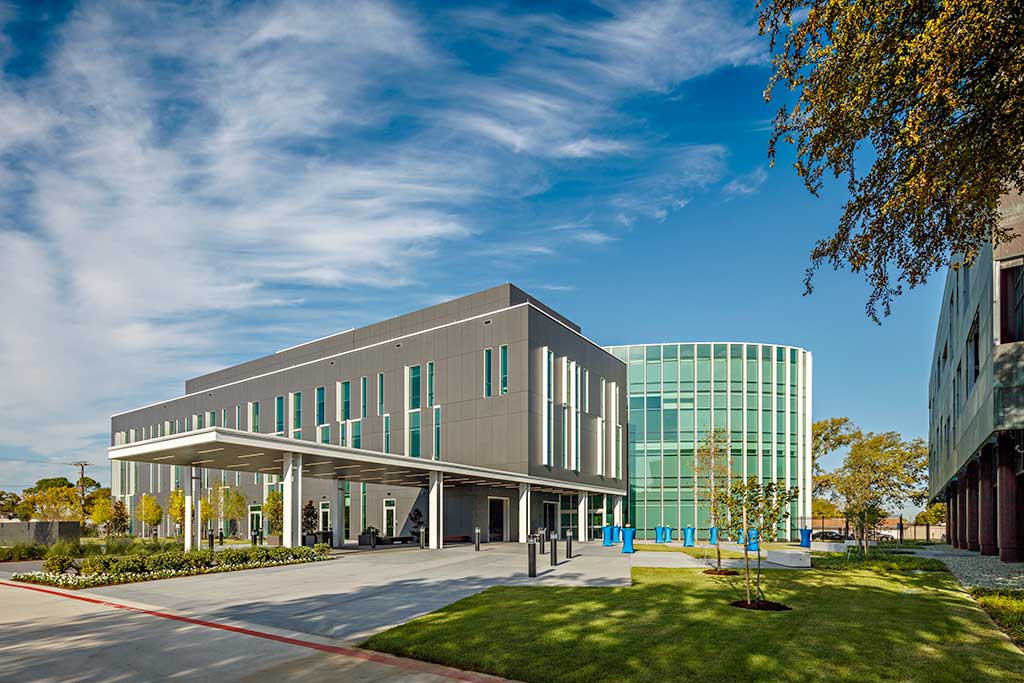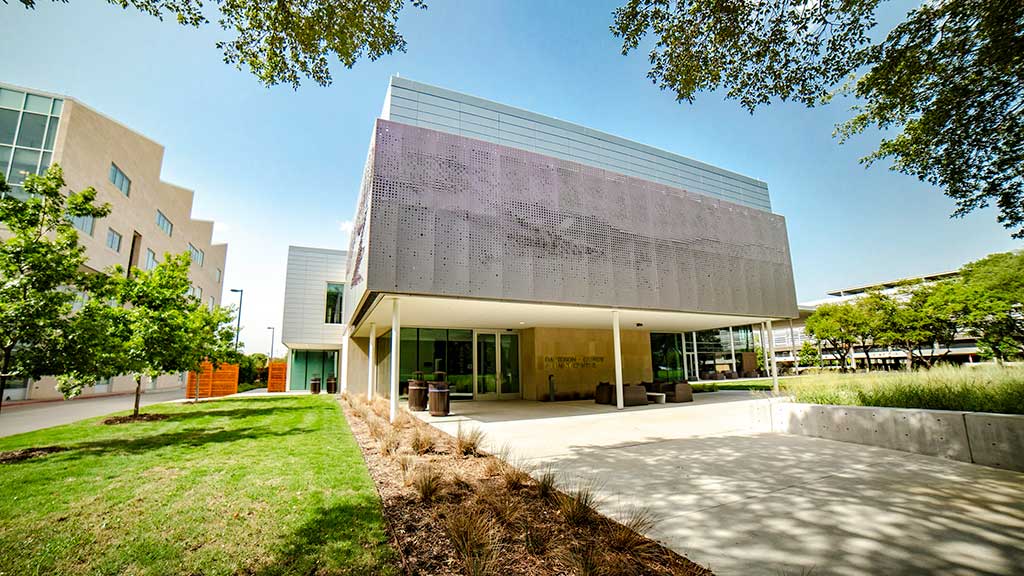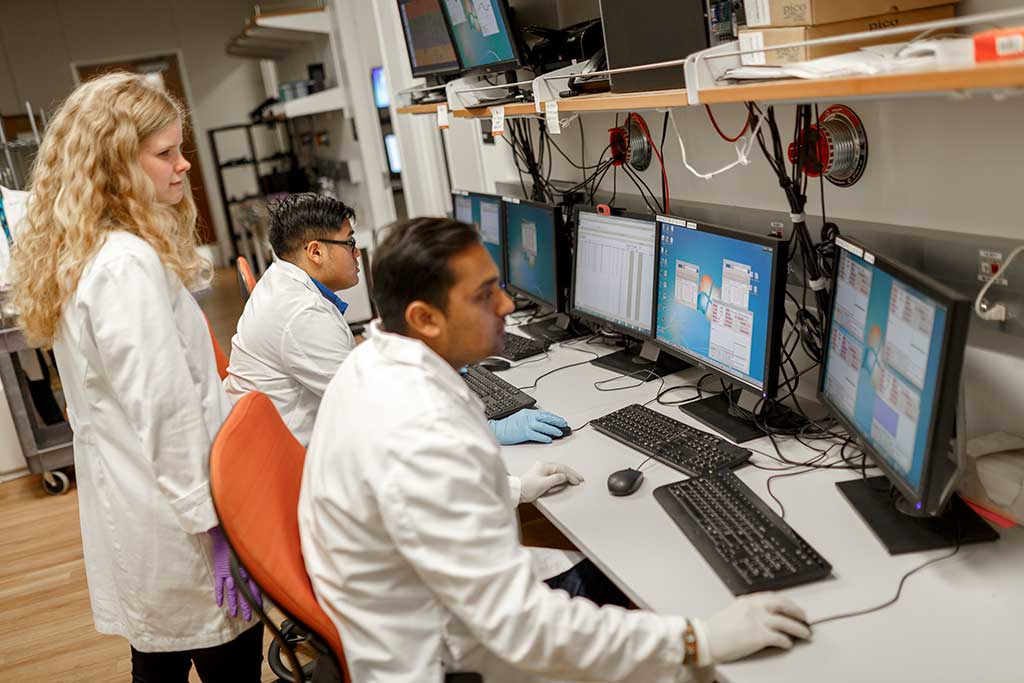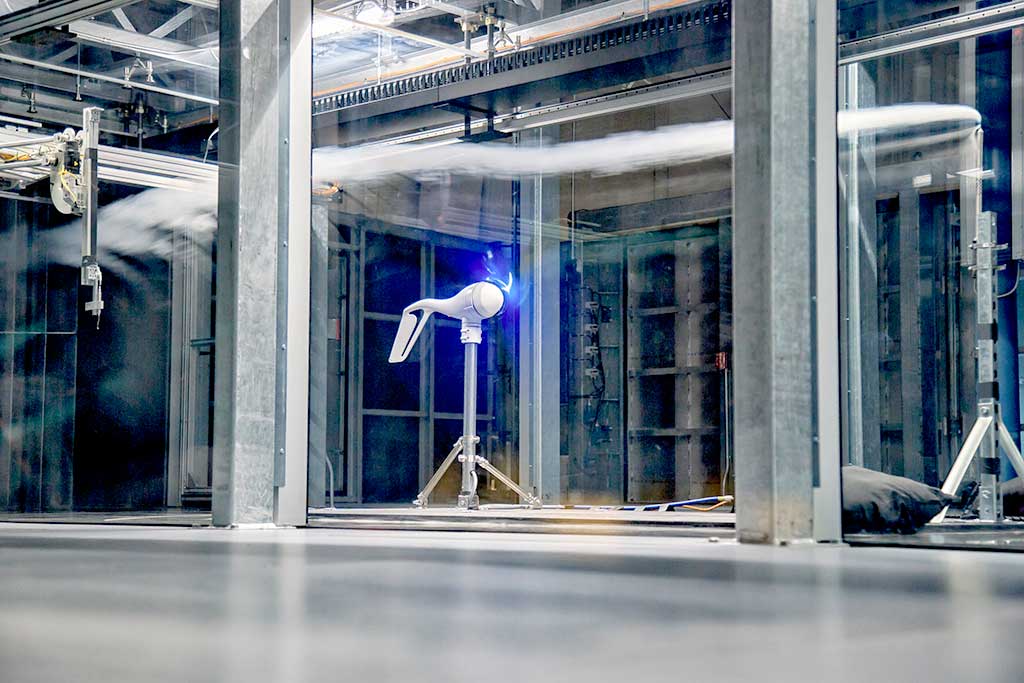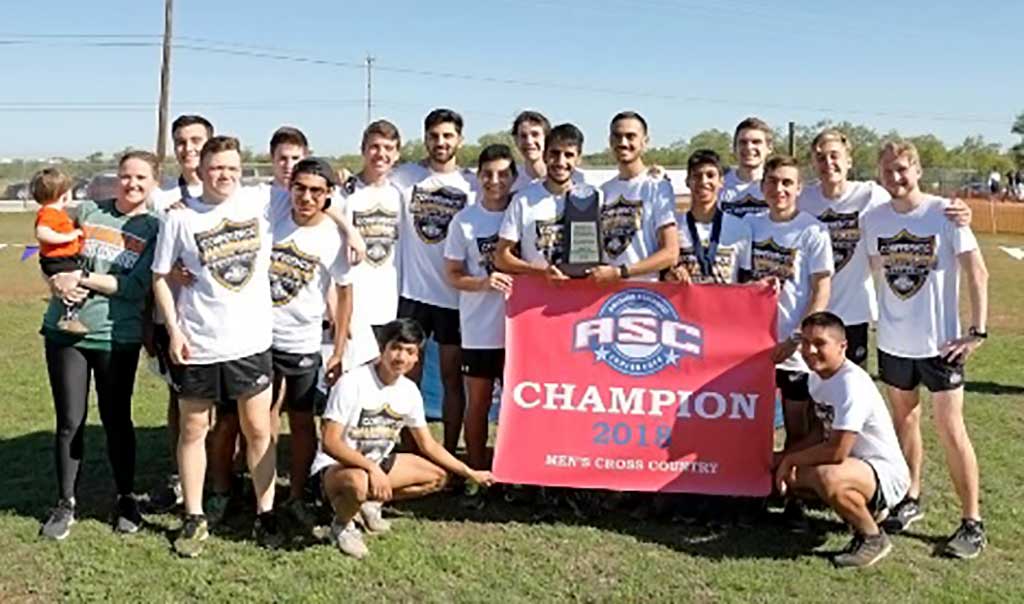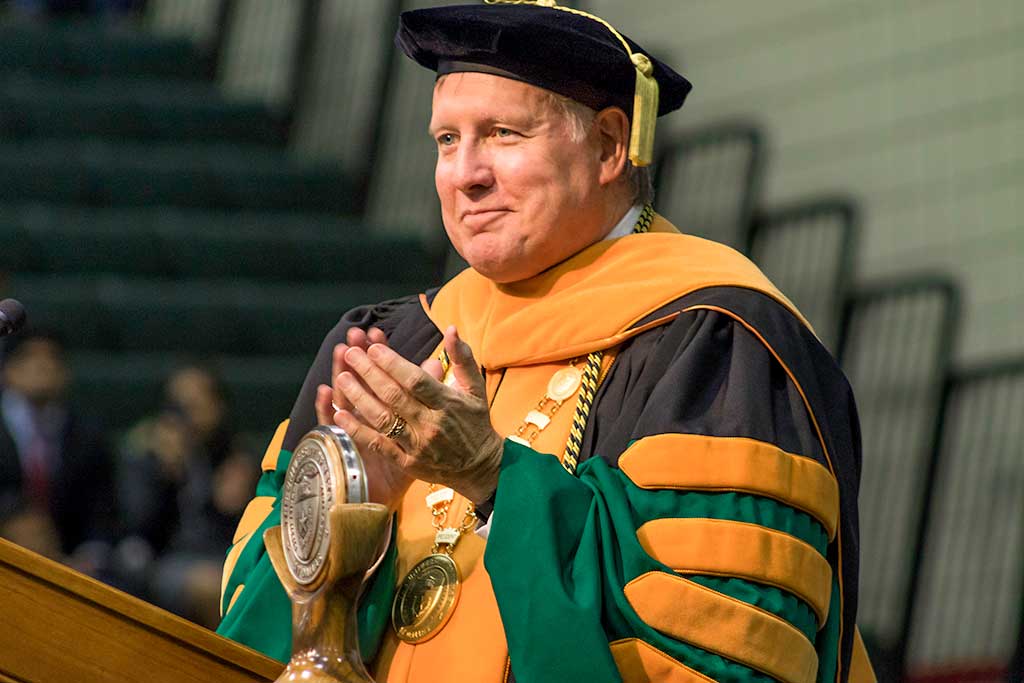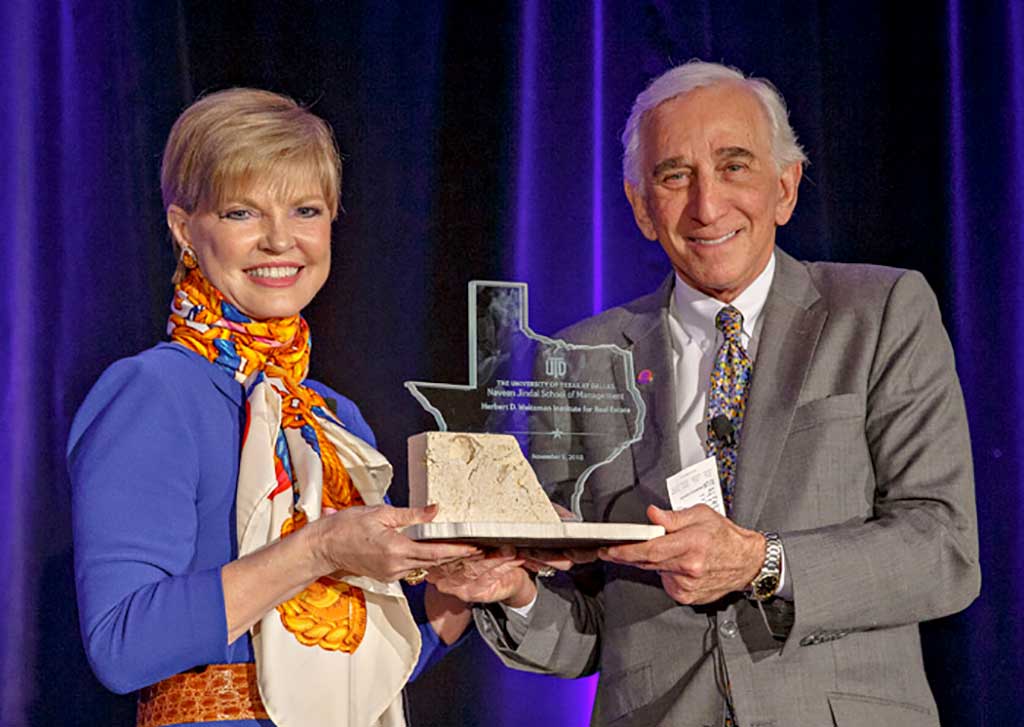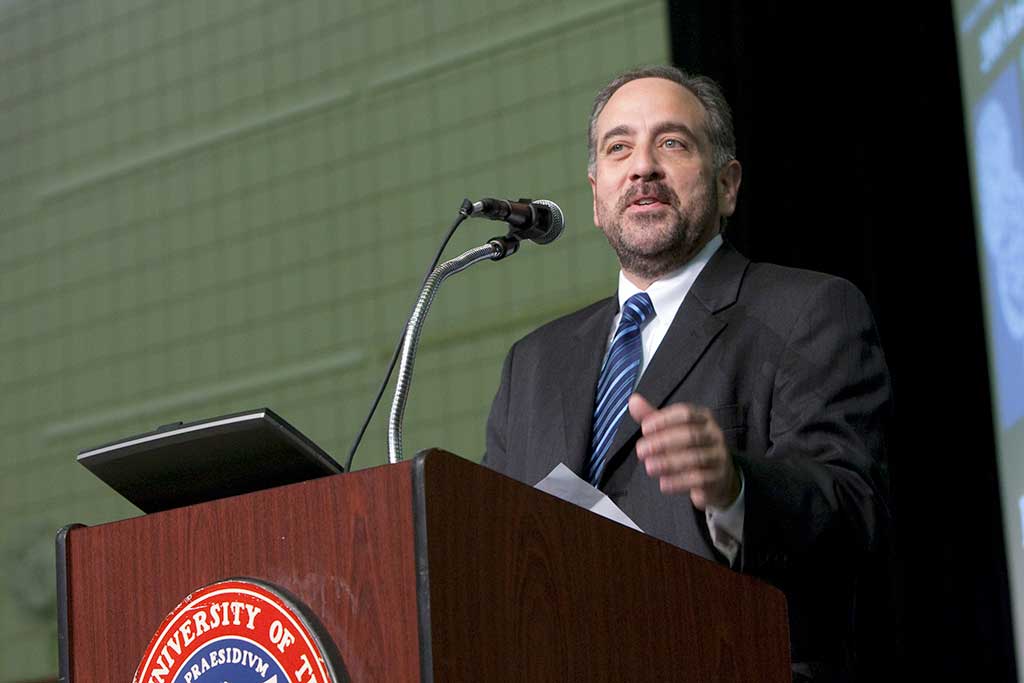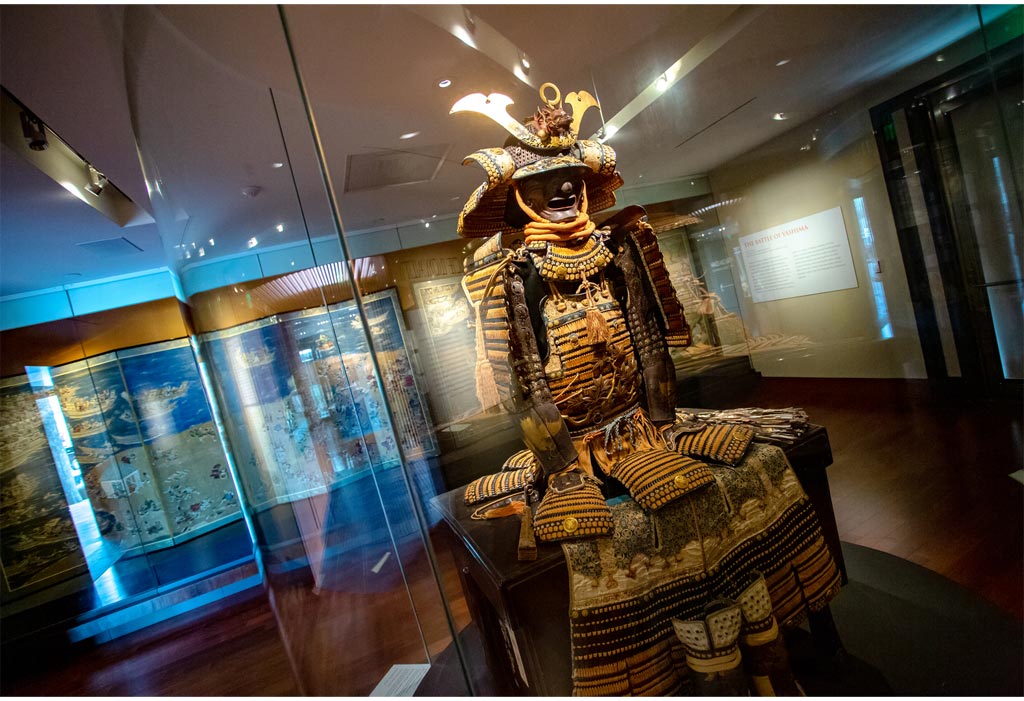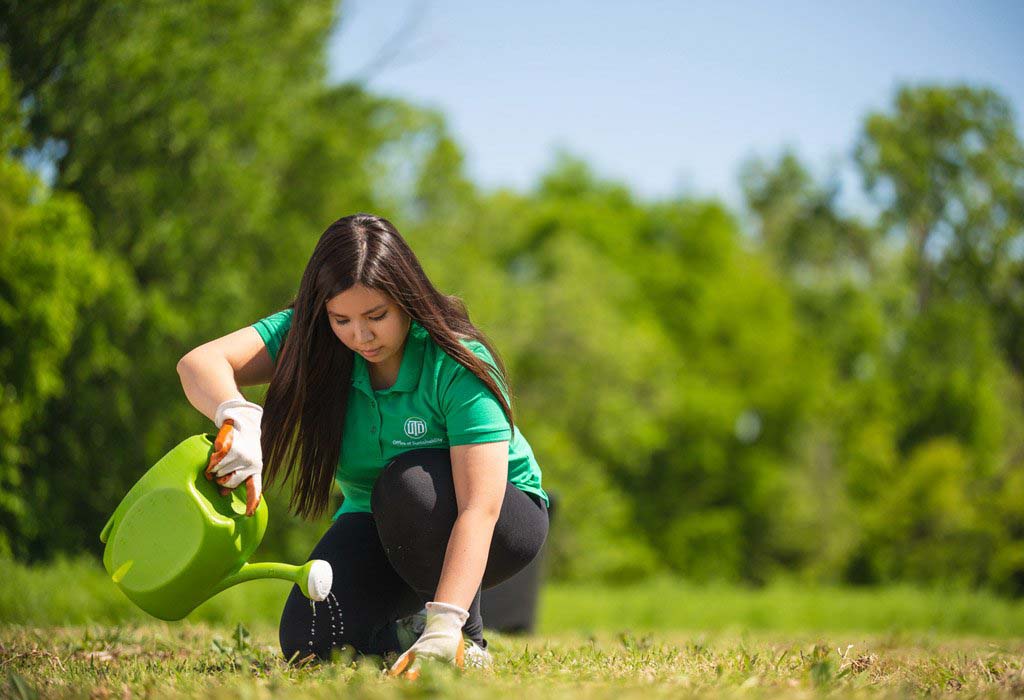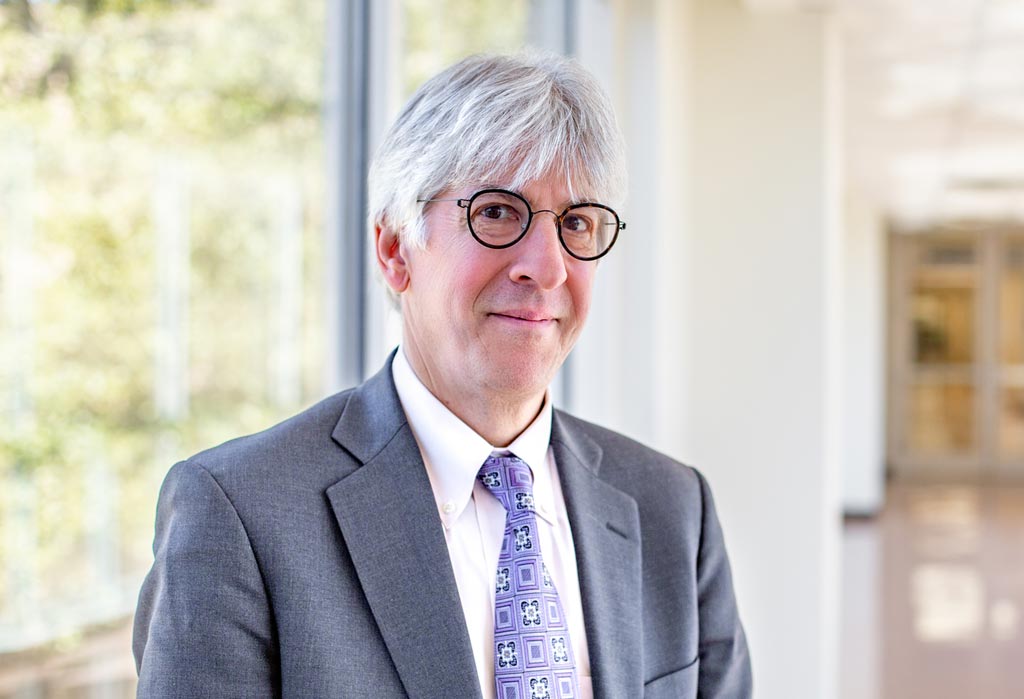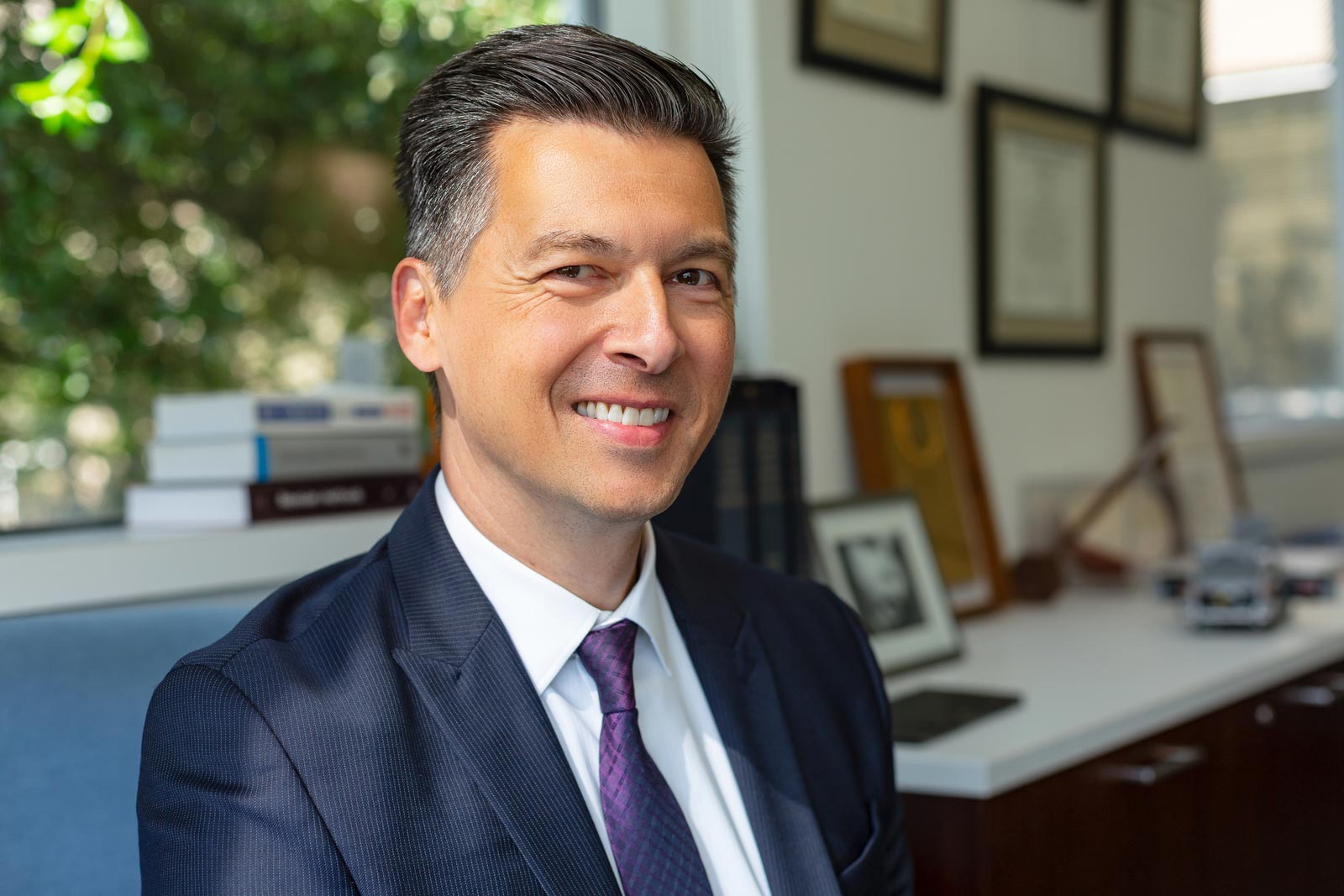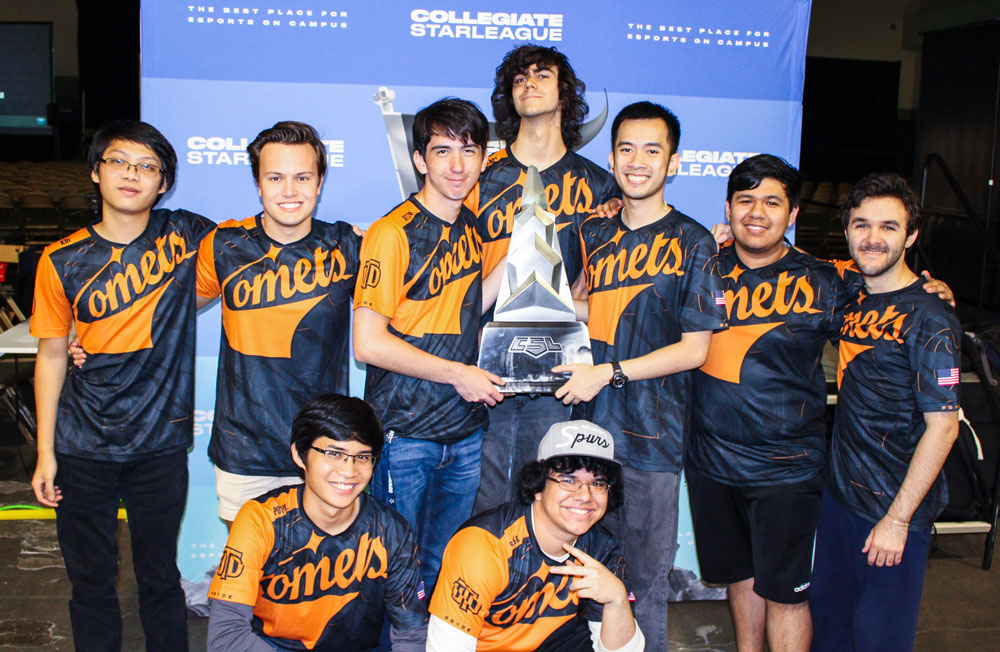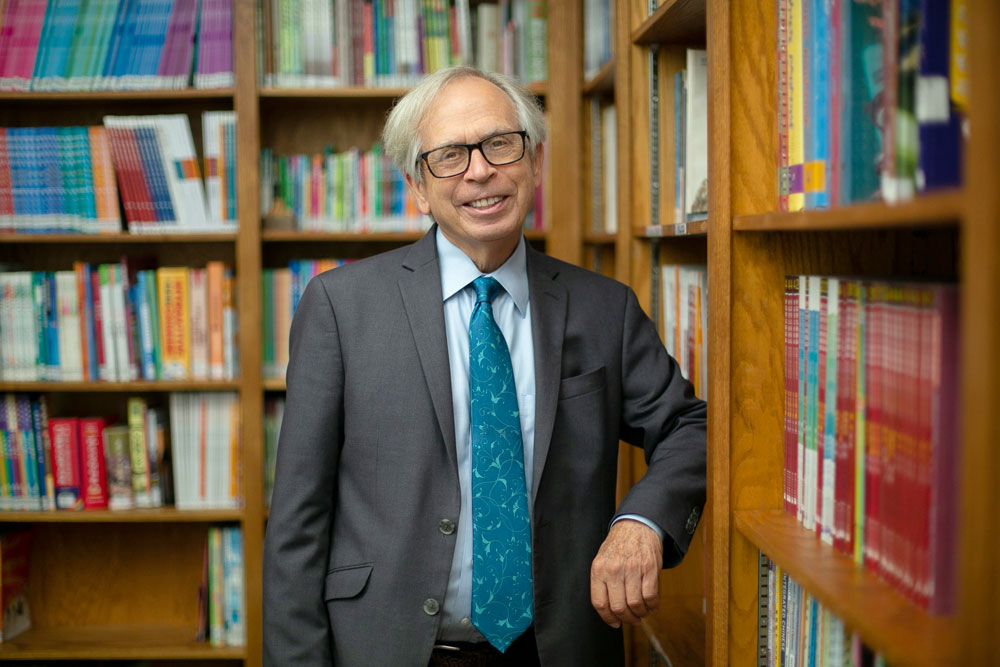2010
- All
- Academics(9)
- Campus(28)
- Culture(3)
- Faculty & Staff(13)
- Honors(15)
- Philanthropy(5)
- Research(1)
The Science Learning Center (SLC) opens and gives students access to a number of instructional and interdisciplinary science labs. Its tiled exterior is inspired by both the atomic emission spectra of gases and the look of human DNA once it is separated in gel electrophoresis.
UTD’s first LEED Platinum facility, the Student Services Building, opens for students with a Career Center, Financial Aid Office and multicultural and gender centers.
Dr. Denise C. Park establishes the Center for Vital Longevity, a center dedicated to researching and understanding the aging brain, memory, cognitive aging and Alzheimer’s disease.
After just eight months of construction, the Visitor Center and University Bookstore opens its doors to visitors and students.
Holocaust Studies gains a new home in the Jonsson Academic Center and is renamed the Ackerman Center for Holocaust Studies in honor of Edward M. Ackerman’s generous support of the center.
Dr. Alex R. Piquero joins UT Dallas as Ashbel Smith Professor of criminology.
Alumni Naveen Jindal MBA’92, Charles “Chuck” Davidson MS’80 and Nancy Gundy Davidson BS’80 collectively donate a joint gift of $30 million. This momentous gift is commemorated in the naming of the Naveen Jindal School of Management and the Davidson Management Honors Program.
Dr. Bruce M. Novak joins UT Dallas as dean of the School of Natural Sciences and Mathematics.
UT Dallas begins an annual tradition for its faculty, the Investiture Ceremony. The ceremony — attended by colleagues, family, and students — is a time to celebrate and recognize UTD’s extraordinary faculty.
The Exley, UTD’s undergraduate research journal, prints for the first time.
Collen Dutton is named leader of the Office of Human Resources at UT Dallas. Prior to joining UTD, she worked in human resources at Rice University and two hospitals, and in public health.
The Comets win their first championship title in an upset against Louisiana College, advancing to their first-ever trip to the NCAA Division III National Tournament.
Both the men’s and women’s tennis teams win their first titles in the American Southwest Conference.
The Texas Symposium on Relativistic Astrophysics returns to UT Dallas for its 27th conference. Dr. Wolfgang Rindler, who was present for the inaugural symposium, and Dr. Mustapha Ishak-Bousaki host the conference. While it is held in locations around the world, the conference retains “Texas” in its name to honor the first gathering at UT Dallas.
In honor of one of Texas’ most generous philanthropists, the Edith O’Donnell Arts and Technology Building is formally dedicated. An inaugural concert features the original composition De Rerum Natura (On the Nature of Things) by Dr. Robert Xavier Rodríguez.
UTDesign gets its own special laboratory space in the Synergy Park North building.
Edith O’Donnell, longtime visionary and patron of the arts and education, makes a contribution of $17 million to create the Edith O’Donnell Institute of Art History.
With a $14-million donation from Margaret McDermott, the Eugene McDermott Graduate Fellows Program begins at UT Dallas.
In a whirlwind of construction, Residence Hall West, Dining Hall West and Recreation Center West open to students.
UT Dallas awards a PhD to its youngest recipient, Austin Howard, who completed his coursework in physics at age 22.
Crowds pack the Edith O’Donnell Arts and Technology Building lecture hall for the first Arts, Technology, and Emerging Communications (ATEC) Distinguished Lecture — a talk by Robert Edsel, author of The Monuments Men. Subsequent events include a talk from former astronaut Mae Jemison; internet pioneer Vinton G. Cerf; and UTD alum and Microsoft executive Christian Belady MA’90.
Eugene McDermott Scholar Bhaskaran Nair BS’13 becomes the first UT Dallas student to receive the Gates Cambridge Scholarship.
Hundreds of donors, faculty, staff and students gather to celebrate the finale of Realize the Vision: The Campaign for Tier One and Beyond. The University’s first comprehensive campaign surpassed its goal to raise more than $263 million.
Dr. Aziz Sancar, who earned his PhD in molecular and cell biology from UT Dallas in 1977, becomes the first UTD alum to win a Nobel Prize.
The Carnegie Classification of Institutions of Higher Education classifies UT Dallas as an R1 Institution — a classification reserved for doctoral institutions with the highest research activity.
Dr. Anne Balsamo is appointed the first dean of the School of Arts, Technology, and Emerging Communication.
Dr. Richard C. Benson is appointed the fifth president of UT Dallas. Since then, UT Dallas has qualified for funding from the National Research University Fund, a third engineering building and alumni center have opened, and President Benson outlined goals in a new strategic plan.
On the third annual Founders Day, the Texas Instruments Plaza is dedicated.
The Founders Building is designated a Milestones in Microbiology site by the American Society of Microbiology.
At 220,000 square feet, the Bioengineering and Sciences Building opens its doors. The building, which houses collaborative labs for bioengineering and neurosciences, is UT Dallas’ largest academic building.
UT Dallas’ Callier Center for Communication Disorders opens its $22-million facility.
Northside, a $54-million mixed-use development, is built by co-developers Balfour Beatty Campus Solutions and Wynne/Jackson on UT Dallas land. The 370,000-square-foot property includes townhomes and apartments.
The women’s cross country team wins the American Southwest Conference championship for the first time.
The 68,000-square-foot Student Services Building Addition opens. It has a 530-seat auditorium, food and retail locations, and a gaming wall.
Margaret McDermott creates an endowment of $10 million for undergraduate research and, per her request, the Honors College is renamed the Hobson Wildenthal Honors College.
Peter Walker, the renowned landscape architect who designed the UT Dallas Landscape Enhancement Project, is awarded the first Richard Brettell Prize in the Arts — an award established with a gift from Margaret McDermott to recognize the essential role of arts, music, literature, performance and design.
In the Young University Rankings report from Times Higher Education, UT Dallas ranks No. 1 in schools founded less than 50 years ago.
Soccer player Sam Konstanty and volleyball player Michelle Toro become the first Comets in school history to earn the prestigious NCAA Postgraduate Scholarship.
The Center for BrainHealth opens its new home for the Brain Performance Institute.
The Davidson-Gundy Alumni Center opens. It is named for Nancy Gundy Davidson BS’80 and Charles “Chuck” Davidson MS’80, in acknowledgment of their $15-million gift that made its construction possible.
UT Dallas achieves the critical benchmark criteria required to qualify for funding from the National Research University Fund, an exclusive source of research support available to the state’s emerging research universities.
The UT Dallas baseball team wins its first American Southwest Conference title.
On the ground where the Alexander Clark Center once stood, the new Engineering and Computer Science West building opens. The building stands four stories high with 200,000 square feet of labs, classrooms and office space.
UT Dallas premieres its on-campus wind tunnel, perfect for automobile and subsonic testing and with the capability of reaching 115 mph.
Margaret McDermott, the wife of founder Eugene McDermott and benefactor of UTD, passes away at age 106. A Dallas native and Red Cross nurse during World War II, Mrs. McDermott’s impact on campus can be seen in the Eugene McDermott Scholars program, the McDermott Library and several endowed chairs honoring her late husband.
The Ackerman Center for Holocaust Studies becomes the new, permanent host of the Annual Scholars Conference on the Holocaust and the Churches and holds the 48th conference on campus.
UT Dallas men’s cross country team captured the American Southwest Conference championship for the first time in team history.
North Texas real estate icon Herb Weitzman and his wife, Donna, establish the Herbert D. Weitzman Institute for Real Estate at the Naveen Jindal School of Management.
UT Dallas becomes one of the few universities to add an esports program to its athletics department.
Dr. Juan González, professor of molecular and cell biology in the School of Natural Sciences and Mathematics, is named dean of Graduate Education.
The Trammell and Margaret Crow family donates the entire collection of the Trammell and Margaret Crow Museum of Asian Art, together with $23 million of support funding, to create the Trammell and Margaret Crow Museum of Asian Art of The University of Texas at Dallas.
President Richard C. Benson unveils a new Strategic Plan, a blueprint for UT Dallas’ success over the next five years.
Dr. Steven L. Small, professor of neurology at the University of California, Irvine and director and chief scientific officer of the Medical Innovation Institute at the UC Irvine School of Medicine, becomes dean of the School of Behavioral and Brain Sciences.
Rafael Martín accepts a new role as vice president and chief of staff for the University. Martín joined UT Dallas in 2003 as the founding manager of the Office of Technology Transfer. He became associate vice president for research in 2006. He also served as interim vice president for research.
Dr. Stephanie G. Adams, professor of engineering management and systems engineering at Old Dominion University and dean of its Frank Batten College of Engineering & Technology, becomes the fifth dean of the Erik Jonsson School of Engineering and Computer Science.
The Super Smash Bros. Ultimate team earned the first athletics national championship for UT Dallas. The esports team traveled to Massachusetts to compete in the Collegiate Starleague Smash Ultimate National Championships on Aug. 23-25 at Shine 2019, one of the largest events in the world for Smash tournaments.
The University of Texas at Dallas establishes the Center for Asian Studies, expanding its commitment to programs that previously were components of the University’s earlier initiatives, the Confucius Institute and the Asia Center. It operates in tandem with the University’s Trammell and Margaret Crow Museum of Asian Art.
